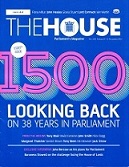BATTLE OF PASSCHENDAELE
|
19 October 2017: Lord Black of Brentwood moved the motion:
That this House takes note of the centenary of the Battle of Passchendaele and of Her Majesty’s Government’s plans to commemorate it. during the debate...... Lord Faulkner of Worcester ..... We have been reminded today about the horror that was Passchendaele and the unimaginable scale of the casualties on the allied and German sides. After the wettest summer for 30 years, the ground under foot was a quagmire, and the mud was so deep that men and horses drowned in it—described by Siegfried Sassoon in his heart-breaking poem, “Memorial Tablet”, quoted to such effect by the noble Lord, Lord Black, in his speech. One soldier who fought at Passchendaele and survived was Harry Patch, who died in 2009 at the age of 111, the last British survivor of the trenches. I had the privilege of meeting him in Ypres the year before, when he paid his last visit to the Western Front. His Great War service was uncovered only in 2000, when he began to talk of his wartime experiences. He was an ardent spokesman for the promotion of peace, saying that war benefits no one but merely leaves individuals and families irretrievably scarred. He travelled back to the battlefields of Ypres regularly during the last decade of his life, and attended the “Last Post” ceremony at the Menin Gate, always promoting the same message: dialogue, rather than show of arms. He agreed to meet a German veteran while in Ypres in 2006, and their coming together was a powerful symbol of reconciliation. I think that he would have agreed with David Lloyd George, about whom the noble Lord, Lord Lexden, spoke, when he described Passchendaele in his war memoirs as, “one of the greatest disasters of the war... No soldier of any intelligence now defends this senseless campaign”..... read contribution in full |


































